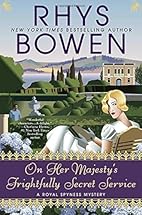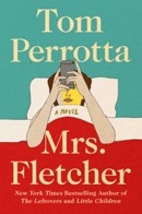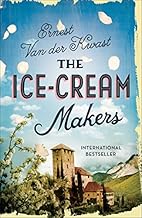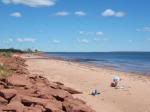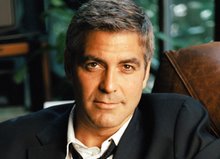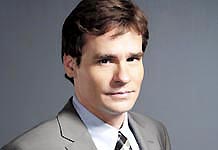Somewhere along the internet, I heard great things about Jess Walter. His books were often on the 'Best Of' lists at the end of the year. I confess, I'm easily influenced by book lists. Unfortunately, some of the books that get listed for awards or Best Of' leave me bored. I'm particularly thinking of Michael Coetzee. Sometimes the themes and writing style that literary critics like is not what I particularly like. So I was surprised to buy my second book by Walter without having read the first. Risky!
Lucky to report, I quite liked Walter's style and both books I've read this year.
Citizen Vince by Jess Walter, 292 pages
Edgar Award Novel 2006
1980s, a week before the presidential election between Carter and Reagan, and Vince Camden, donut maker and small time crook, gets a registered voter's card. This might not seem a big deal, but it is for Vince, who is in the Witness Protection Plan, and was a felon. Vince is trying to live a 'regular' life but finds it a little dull. When he notices someone in Spokane that he recognizes from his former life, life stops being quite so dull.
I really liked this book. The juxtoposition of the election against the mob mentality plus Vince is a guy you kind of hope for, even though he was a rat and a bad guy before. I also liked the 80s setting and the real life events that were happening at the same time. Second book this year with the Iranian hostage story! see also
Argo
Walter's writing is so much plot and characters, but the writing is also solid, making me feel I'm reading more than just a genre mystery fiction book. As well, there is a humour present in the descriptions, as well as a crime noir feel. I feel the higher level of writing, but it doesn't overwhelm me or intimidate/bore me with descriptions or themes. Walter accomplishes a lot in this book, especially keeping me entertained.
Beautiful Ruins by Jess Walter, 352 pages
NYT Notable Books 2012
This was probably the book that made me notice Walter, a lot because, how gorgeous is that cover? A little village in Italy - divine.
Many strands in this book - I saw it described as 'braided narrative' at Tournament of Books, keep the pages turning.
In 1962 a young American actress takes a break from filming Anthony and Cleopatra in Rome (and yes, Richard Burton makes a cameo later in the book) and arrives at the most out of the way village in Italy, to stay at the Hotel of Adequate View. ha!
Also, present day Hollywood with an old producer guy. And rural Montana with a semi rock star. And a story within a story written from the same village by an American army guy.
Some stories work better than others, but the plot strands kept me interested. Trying to see how the people were connected is always the best part of braided narratives. I liked this one, it was different than many books I read, and I'd read more books by Jess Walter.

